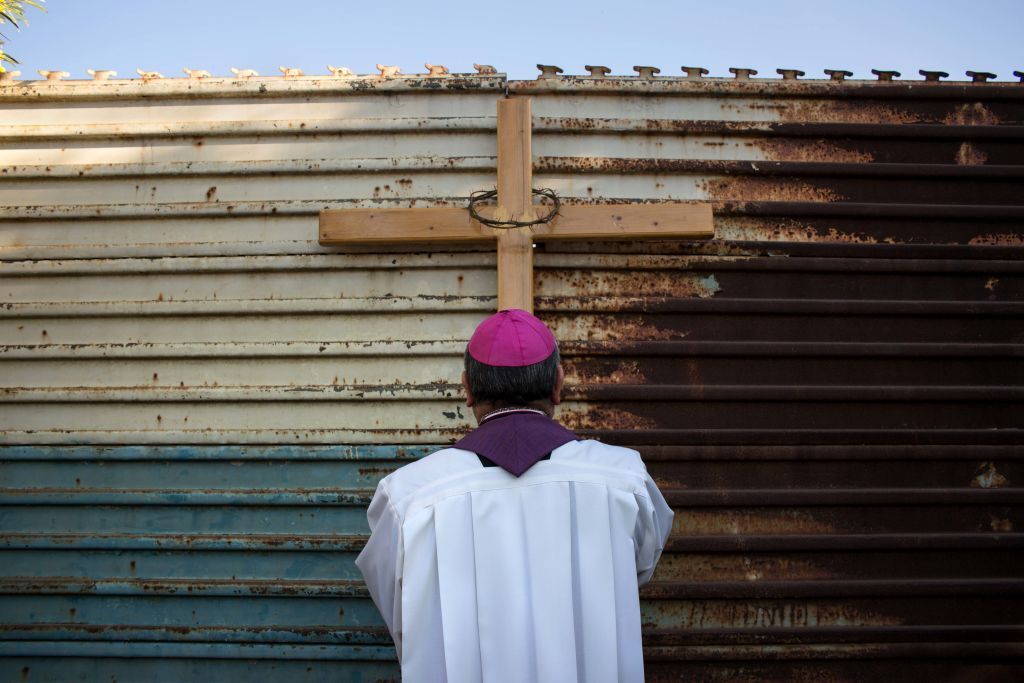A Ghanaian archbishop has stirred up controversy in the African country after comparing LGBTQ people to murderers in a recent interview.
Rev. Charles Gabriel Palmer-Buckle spoke out this week in support of President Nana Akufo-Addo, who told Al-Jazeera in November that Ghana is not ready to decriminalize homosexuality. Palmer-Buckle said the backlash to Akufo-Addo’s comments misinterpreted the intent of his statement.
“The president is not God,” he told Ghana’s Joy News in an interview published on Monday. “He cannot say that Ghana will never accept it. He said culturally, it is not an issue that Ghanaians will accept.”
“I don’t think people listened very carefully to the president before they jumped to a conclusion,” he continued.
The Archbishop of the Roman Catholic Church, described as a major force in the nation’s political life, added that his religion believes LGBTQ people are equal under God, “just like the murderer and heterosexual.”
Homosexuality is currently illegal in Ghana under Chapter 6 of the Criminal Code. The 1960 law, a vestige of British colonial rule, prohibits “unnatural carnal knowledge” as a misdemeanor offense, punishable by up to three years in prison. The criminal codes are vaguer on the subject of lesbianism, as the law defines “carnal knowledge” as penetration.
Under this law, gay men are arrested, brutalized, and even publicly shamed.
Two men were outed on social media in March after they were discovered having sex in an Accra hotel room. Photos captured by a security camera were posted on Facebook after their arrest by by Kaneshie Police.
President Akufo-Addo told Al-Jazeera last month that the harsh treatment of LGBTQ people won’t be changing anytime soon.
“At the moment, I don’t feel and I don’t see that in Ghana there is that strong current of opinion that is saying that this is something that we need even deal with,” he claims in the much-discussed interview. “It is not so far a matter which is on the agenda.”
But the president believes that pro-LGBTQ reforms are “bound to happen” in Ghana, citing the recent wave of progress in nations around the world. Even despite a brutal backlash against queer and trans people in countries like Russia, Azerbaijan, and Egypt, at least 13 countries or regional governments moved to legalize same-sex marriage in 2017.
Akufo-Addo says that Ghana just isn’t there yet.
He compares the country to the United Kingdom in the 1960s, a time in which LGBTQ rights weren’t on most of the country’s radar. The leader, who briefly studied at Oxford in the early 60s, says the growing movement for equality in the decades since his schooldays “forced a change in [the] law.” The U.K. ratified marriage equality in 2013.
“I believe that those are the same processes,” Akufo-Addo claims.
For now, Ghana has a lot of work to do if the country hopes to catch up with more progressive neighbors like Botswana, where a court ruled in October that a transgender man had the legal right to be recognized as male.
Just three percent of Ghanaians claimed in a 2013 survey from the Pew Research Center that society should accept homosexuality. A sign discovered at the Accra International Airport in 2010 warned “pedophiles and other sexual deviants” not to enter the country, citing its “extremely harsh penalties on such aberrant behavior.”
“If you are in Ghana for such activity, then for everybody’s good, including your own, we suggest you go elsewhere,” the sign read.
Don't forget to share:
Help make sure LGBTQ+ stories are being told...
We can't rely on mainstream media to tell our stories. That's why we don't lock our articles behind a paywall. Will you support our mission with a contribution today?
Cancel anytime · Proudly LGBTQ+ owned and operated
Read More in Impact
The Latest on INTO
Subscribe to get a twice-weekly dose of queer news, updates, and insights from the INTO team.
in Your Inbox













